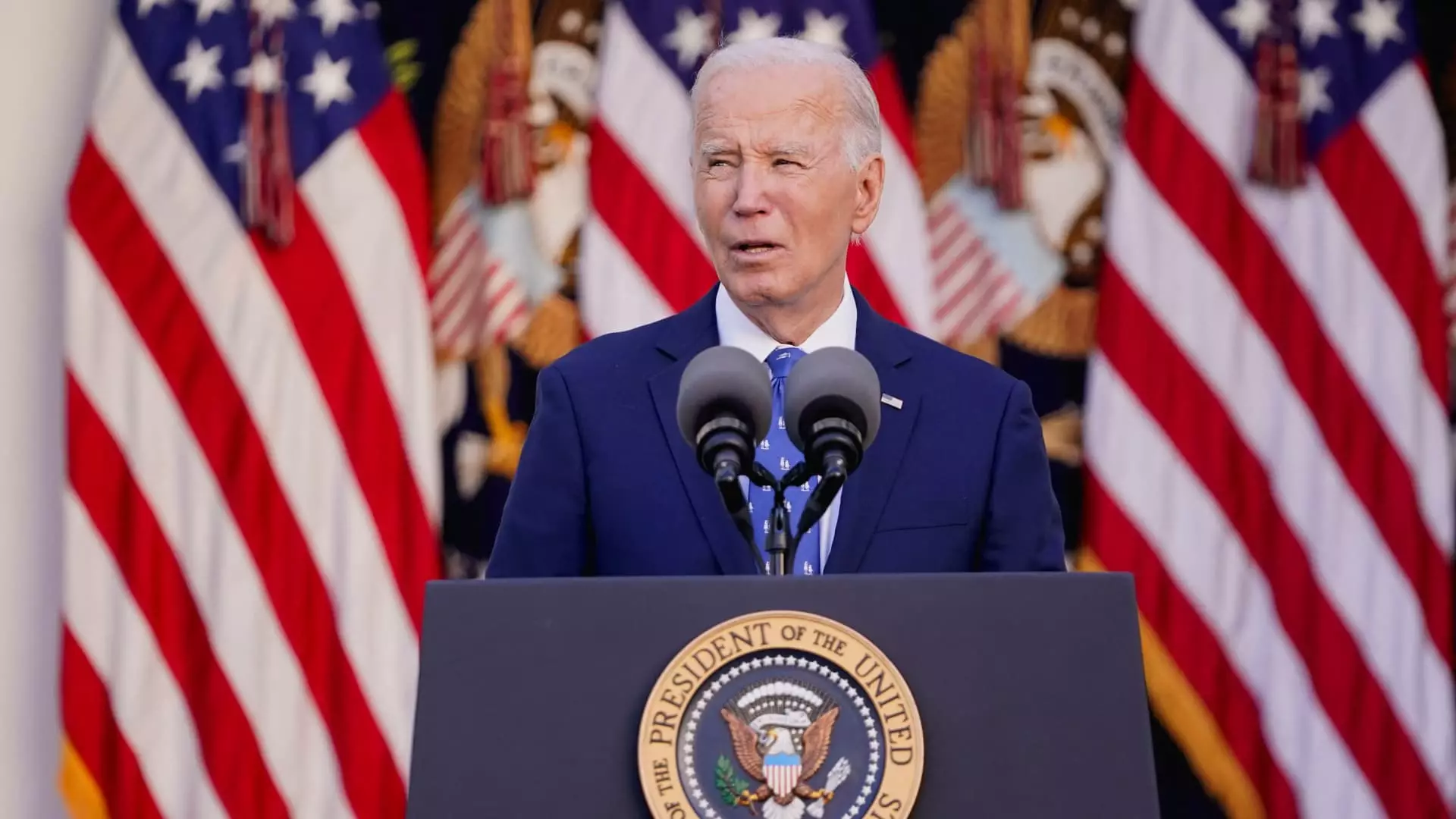The recent developments in Syria present a significant turning point for the nation, historically marked by years of dictatorship and civil strife. In a momentous announcement from the White House, President Joe Biden articulated his support for the toppling of Bashar al-Assad’s regime, framing it as a crucial opportunity for the Syrian populace to cultivate a brighter future. This change is not merely symbolic; it’s a potential catalyst for rebuilding a nation that has endured profound suffering over the past twelve years. Biden’s remarks underscore the gravity of this historic moment, emphasizing the necessity of collaboration with various stakeholders to ensure a stable and prosperous outcome for Syria.
However, as with any transition from autocracy to potential democracy, the path forward is fraught with uncertainty. The president acknowledged the inherent risks associated with this leadership shift, highlighting the dual nature of such a transformative event: the promise of a new beginning, counterbalanced by the perils of power vacuums and possible escalations of violence. How Syria navigates this newfound opportunity will be pivotal not only for its citizens but for the wider geopolitical landscape.
In his address, Biden also stressed the importance of U.S. support for Syria’s neighboring nations—Jordan, Iraq, Lebanon, and Israel—during this precarious transitional phase. By reinforcing alliances and providing assistance to these countries, the U.S. aims to create a framework that stabilizes the region amidst potential fallout from Syria’s upheaval. This strategic approach highlights the interconnected nature of Middle Eastern politics, wherein instability in one nation can have ripple effects across borders.
The commitment to supporting these countries is intertwined with another crucial element of Biden’s strategy: the ongoing mission against ISIS. With the group’s potential resurgence in an environment of chaos, the U.S. administration has reiterated its determination to thwart any attempts by ISIS to exploit Syria’s instability. Through precision airstrikes targeting ISIS operatives and camps, the Biden administration signals that American military involvement will continue, maintaining focus on eradicating terrorism while fostering conditions for peace.
Biden’s caution extends beyond ISIS to encompass the various rebel groups that played a role in dismantling Assad’s regime. While these factions may present themselves as proponents of freedom, their histories are marred by accusations of terrorism and human rights violations. The president’s call for vigilance indicates that the U.S. will closely monitor these groups as they assume greater governance responsibilities. Such scrutiny is essential in determining whether they genuinely represent the aspirations of the Syrian people or merely seek to perpetuate control in a different guise.
The complexities of this political metamorphosis are evident. The geopolitical landscape is rife with factions that may have ulterior motives, underscoring the necessity for the United States to engage in nuanced diplomatic efforts and intelligence assessments. Being clear-eyed about the diverse motives at play will be indispensable for ensuring that the direction taken aligns with ideals of human rights and democratic governance.
In addition to military and political strategies, Biden’s address touched upon humanitarian aid—an essential component for a country grappling with the aftermath of civil war. The devastation wrought by years of conflict necessitates a robust approach to reconstruction and recovery, particularly in light of the estimated 6.9 million internally displaced persons and countless others in dire need of basic services and support. The promise to provide aid reinforces the United States’ commitment to not only assist in the political transition but also to ameliorate the human suffering that has accompanied it.
The mention of Austin Tice, a journalist missing since 2012, further highlights the U.S. administration’s dedication to addressing individual fates amidst broader geopolitical changes. Biden’s insistence that Tice is alive and his commitment to bringing him home exemplifies a moral obligation that transcends political maneuvering.
As the dust settles on Assad’s apparent resignation, questions loom regarding the future of Syria’s governance and accountability for past atrocities. Biden’s assertion calling for Assad to be held responsible reflects a broader demand for justice that many Syrians and the international community share. The upheaval created by Assad’s departure opens a window for a new governance structure, one that champions accountability and the rule of law.
This moment is also an opportunity for Russia, Iran, and Hezbollah—Assad’s traditional allies—to reevaluate their roles in the region. With these powers reported to be “far weaker” than when Biden assumed office, the geopolitical landscape may undergo a significant realignment, impacting future alliances and conflicts.
Syria stands at a crossroads, filled with both hope and apprehension. The forthcoming months will be essential in determining whether this historic opportunity evolves into a stable and thriving democratic society or whether the shadows of the past persist, further complicating the region’s future. The world watches as the people of Syria strive for a tomorrow free of tyranny and full of potential.


Leave a Reply